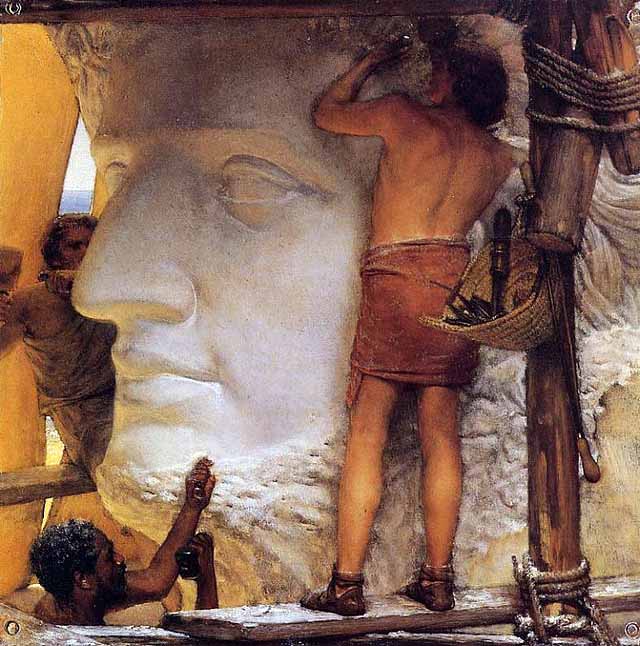Upcoming Seasons
Upcoming seasons of the podcast will take us through the Middle Ages, with a large sampling of Arabic, Persian, and non-Anglophone European literature. While we’ll explore standard texts like Beowulf and The Romance of the Rose, we’ll also learn about Old Irish, Middle Welsh, Old Norse, and Byzantine texts produced between 700 and 1200 CE. The upcoming seasons described below don’t pretend to be a comprehensive introduction to world literature during the medieval period. But they should nonetheless serve as a useful survey of the most influential texts produced by much of the medieval world. You can also learn about previous seasons of Literature and History on this page.How I Decide What’s Coming Soon
A few main criteria have gone into the podcast’s plans for the future. The first and most important has been listener input, both through email and through our anonymous survey. The main message I’ve received is a request for a more global literary history of the Middle Ages – one not so focused on England, France, Italy, and the papacy. Considering that there are already strong podcasts on these subjects, like Kevin Stroud’s History of English and numerous programs of In Our Time, focusing predominantly on northern Europe’s medieval period doesn’t seem like an optimal plan for Literature and History.Just as importantly, new scholarly translations, like NYU Abu Dhabi’s Library of Arabic Literature series, are making Arabic, Persian, and Byzantine literature far more accessible to those of us unable to read such texts in their original languages, in spite of what’s inevitably lost in translation. Thus, listener requests, alongside a wealth of newer, academically sound translations, have encouraged me to take the podcast outside of its customary European and Mediterranean confines for entire upcoming seasons, not to mention engaging extensively aforementinoed indigenous European literary traditions in Old Irish, Middle Welsh, Old Spanish, Middle High German, and Old Norse. Below is a summary of where we’re headed.

Season 7: Early Islamic History
During the 400s and 500s CE, much of the Arabian Peninsula was a marchland between the Sasanian east, and the Byzantine west, crisscrossed with caravan traffic, and always in contact with kingdoms in modern-day Yemen and Ethiopia. During this period, the Pre-Islamic, or “Jahili” period of ancient Arabian culture, Judaism and Christianity were widespread on the peninsula, alongside Arabia’s diverse polytheistic religions. Into this complex cultural milieu, controlled by powerful tribes who often allied with regional empires, the Prophet Muhammad was born in about 570 CE. Season 7 of Literature and History covers the major developments in Middle Eastern history from about 400-800 CE, including Pre-Islamic cultural history and poetry in Arabia, the life of Muhammad and contents of the Qur’an, the Byzantine-Sasanian War of 602-628, later Sasanian Zoroastrian texts, the Rashidun and Umayyad Caliphates, the Hadiths and early Islamic poetry, and finally, the birth of Sufism and gradual entrenchment of the Sunni-Shia schism from the eighth century onward. Though our main emphasis will, as always, be on literature, we’ll take some interesting sidetracks and learn about the theology and institutions that made Arabic and Persian-speaking urban centers some of the main intellectual and cultural engines of the Middle Ages.
Season 8: Western Europe in the Early Middle Ages
Between 600 and 900, in the former Roman provinces of Britannia and Gaul, and on the Italian Peninsula itself, Roman institutions eroded into a patchwork of hardy kingdoms, and European vernacular literature and history began to be produced in earnest. In a sequence of episodes that includes a primer on Old English, and then programs on Bede, early English hagiography, the Exeter Book, Cynewulf, early Old Irish mythology and poetry, the historical works of Asser and Paul the Deacon, and finally the Carolingian Renaissance, we’ll study the major literary texts that survive from this fascinating transitional period in western Europe’s history, with an interlude to discuss the Umayyad invasion of the Iberian Peninsula in 711, the birth of Al-Andalus, and its early wars with Franks and Duchy of Aquitaine. Prior to the Norman Conquest of 1066, and the First Crusade of 1096-9, western Europe could be an insular place, but within its insularity was a bustling clerical class that laid the groundwork for the High Middle Ages.
Season 9: The Early Islamic Golden Age
One of our most exciting upcoming seasons is a sequence on the Early Islamic Golden Age. During the 800s and 900s, as much of Europe limped through invasions, dynastic struggles and fractious dearth, prose and poetry in Arabic and Persian flourished. These extraordinary centuries saw the production of the 1001 Nights, the poetry of Abbas Ibn al-Ahnaf, Abu Nuwas, and Abu al-Atahiya, the seminal scientific work of al-Razi, and the syncretic philosophy of al-Farabi, not to mention Ferdowsi, whose Shahnameh remains the epic poem of Iran. Our season on early Golden Age literature will come to a head with the philosophy of Avicenna. While the main order of Season 10 will be offering an introduction to early Abbasid period literature and cultural history, the sequence will begin and end in Byzantium, first with an episode on Photios of Constantinople (9th century), and then the story of the Great Schism of 1054 and the First Crusade (1096-9). The goal of this slightly diffuse focus will be to prepare us for the High Middle Ages and the extraordinary 12th century – one of literature’s most fruitful periods, particularly in the Islamic and Christian worlds.
Season 10: Europe’s High Middle Ages, Part 1
The twelfth century was a tremendous time for the literature of western Europe. The First Crusade (1096-9) and Second Crusade (1147-50), however much they were collective tragedies, opened cultural and economic pathways that changed European history forever. And while new trade goods and ideas were flowing in from the east, it is from the 1100s and a little after that we also begin to see indigenous European literary traditions begin to flower, as well, resulting in the many texts we’ll cover in this season. These will include the Old French Song of Roland, the Middle Welsh Mabinogion, Monmouth’s History of the Kings of Britain, the works of Chretien de Troyes, Marie de France, Pierre Abelard, and Hildegard of Bingen. We’ll bring Season 11 to its crescendo with the Middle High German epic Nibelungenlied, and while our podcast, as usual, will primarily concern itself with works of literature, we’ll take the time to tell the story of the Second, Third, and Fourth Crusades before moving onto a whole different set of literary traditions that flowed into European literature from the North.
Season 11: Europe’s High Middle Ages, Part 2
T.S. Eliot wrote that “The bloodstream of European literature is Latin and Greek,” and while we’ve explored several reasons why this claim is wildly inaccurate, another is that many European literary traditions are European in origin. As we saw in the previous season, poets from modern-day Wales, Germany and elsewhere set down major literary works that have been popular since the twelfth century. In Season 13, we’ll consider other indigenous European literary traditions that become evident on the written record during the High Middle Ages, focusing particularly on Old Norse literature. The main course of this season will be Snorri Sturluson’s Prose Edda and Heimskringla, and we’ll move onto the Poetic Edda, Njal’s Saga, the Volsunga Saga, the Eyrbyggja Saga, and other Icelandic Sagas. By way of transition, toward the end of the season we’ll read two more continental masterpieces – the fables of Reynard the Fox, and then the Old Spanish epic Poem of the Cid. A sampling of major European literary traditions from the twelfth and thirteenth centuries, Season 13 will get us ready to turn our eyes back to the east.
Season 12: The High Middle Ages in the East
As the crusades continued to rage during the 1100s and 1200s, Greek, Arabic and Persian authors produced some of the most enduring works of world literature. Season 14 will begin with the Maqamat of al-Hariri and an introduction to Averroes, and then go on to tell the story of the Third and Fourth Crusades (1187-1204), culminating with the sack of Byzantium. Speaking of Constantinople, the great city continued to be a literary hub during the High Middle Ages. Following the traditions of ancient Greek novels from the Roman imperial period, a number of Byzantine novels are still extant from the High Middle Ages, including Eustathios Makrembolites’ Hysimine and Hysimines and Anna Komnene’s Alexiad. With some major Arabic and Greek literature of the twelfth and thirteenth centuries covered, Season 14 will then move onto its main course – the Persian poets and polymaths Omar Khayyam, Nezami Ganjavi, Attar of Nishapur, Saadi Shirazi, Rumi, and Amir Khusrau. Jumping ahead a ways into the fourteenth century, Season 14 will conclude with the works of Hafez, one of the most overwhelming poets literature has ever produced. Of the many upcoming seasons of the podcast, Season 12 should offer an especially rich introduction to authors and works commonly ignored in Anglophone literature departments.
Season 13: Six Classic Chinese Novels
The Mongol Invasions of the 13th and 14th centuries changed history forever. While the first Mongol conquest was roughly contemporary with the Fifth and Sixth crusades (all three took place between 1206 and 1229), further Mongol conquests created a trans-Eurasian empire unlike anything that had existed before. Season 13, after offering an introduction to the cultural ramifications of the early Mongol Empire’s conquests, will do two things the Literature and History podcast hasn’t yet done – these are (1) to jump chronologically through several centuries, and (2) to cover Chinese literature. Season 13’s main focus will be multi-episode sequences on what are often called the six classic Chinese novels, these being the Romance of the Three Kingdoms (1300s), Water Margin (1300s-1500s), Journey to the West (1500s), The Plum in the Golden Vase (1500s-1600s), The Scholars (mid-1700s) and Dream of the Red Chamber (1750). While your host’s qualifications for covering these novels are modest at best, there are very few free educational audio resources on them, and he hopes that the multitude of excellent new scholarly translations and help from specialists will allow him to create a useful introduction to China’s most famous works of literature before the podcast returns to its customary heartland of western Eurasia.
Season 14 and Beyond
Season 14, and other upcoming seasons, will take us to the tremendous fourteenth century – that of Dante’s works, the Book of Dede Korkut, Perceforest, Juan Ruiz, Petrarch, Dafydd ap Gwilym, Boccaccio, Langland, Mandeville’s Travels, Gower, Chaucer, the Pearl Poet, and Christine de Pizan, not to mention Hafez, Khusrau, and the Romance of the Three Kingdoms, which we’ll have covered in earlier seasons. “The calamitous fourteenth century,” as Barbara Tuchman called it, saw the Bubonic plague, but it also saw ancient kingdoms and ecclesiastical gridworks destabilized by wars, pandemics, migrations, and cultural interchanges, and new ones – most importantly the Ottoman Empire, born in their wake. While major literary works of the fourteenth century will likely take two seasons to cover, as Literature and History brings the Middle Ages to a close, we expect that our show’s earlier episodes on Greco-Roman literature, the Bible and Christian history, and the Qur’an and Islamic history will allow us to begin the story of the Renaissance with excellent background knowledge. Future upcoming seasons will take us into the Late Middle Ages and Renaissance, continuing the show’s spirit of comparative literary and cultural history.
All Seasons








